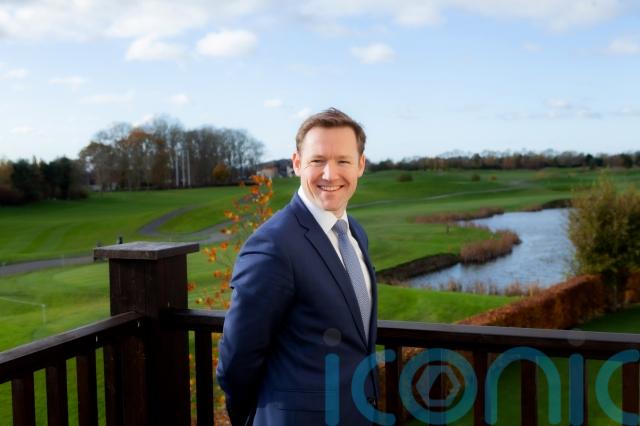
The rate of house price inflation has halved in the past three months as home-buyers become more cautious amid rising living costs, a new survey has found.
The actual selling price of a three-bedroom semi-detached house across the country rose by 1.4% over the past three months to 290,630 euro – an annual increase of 10%, according to the latest Real Estate Alliance (REA) average house price index.
REA said this is a marked slowdown on the 2.9% quarterly increase recorded in the preceding three months, “signalling a cooling of the frenetic demand in the marketplace”.
The third quarter index also found that A-rated homes are fetching 12% more than C-rated properties.
The gap rises to 16% in the capital as running costs become more important to home-buyers.

The time taken to reach “sale agreed” rose from four weeks to five weeks as REA agents nationwide reported a “less frenzied” approach to viewing and buying.
While the actual average selling price of three-bedroom homes in Dublin city is about to breach the 500,000 euro mark, the 0.8% quarterly rise to 497,500 euro is half that experienced in the previous three months.
REA spokesman Barry McDonald said: “We have seen a definite slowdown in demand levels and the urgency that we were seeing with buyers has reduced.
“The traditional summer lull returned for the first time in a few years and there was no signs of the market heating up again in September, which is good news for buyers.”
He went on: “Interest rate rises and cost-of-living inflation are definitely affecting sentiment, with viewers patiently waiting for the right property.
“There is still a massive shortage of housing, but Dublin agents REA Grimes are reporting an increase in supply and a wider choice of properties coming to market, leading to a longer sale time.
“The energy rating of a house is becoming a main talking point, with buyers increasingly taking the cost of heating or increasing the energy rating of older homes into account.”
First-time buyers accounted for almost 60% of all purchasers in the third quarter of this year, according to REA, a figure which rose to 76% in Dublin.
Meanwhile, the latest data from property website Myhome.ie showed that the rate of increase in asking prices for homes slowed in the third quarter of the year.
Myhome.ie’s house price report found quarterly asking price inflation dropped by 1.3% nationally between July and September compared with the previous quarter.
It takes the annual rate of inflation to 7.8% and means the median asking price for new properties on the market now stands at 320,000 euro.
In Dublin, asking price inflation dropped by 1.1% in the third quarter, taking the median asking price to 420,000 euro.
Elsewhere around the country the inflation rate dropped by 1% quarter on quarter, taking the median asking price to 275,000 euro.
The average time to reach “sale agreed” in the three months to the end of September fell to 2.6 months nationwide, which Myhome.ie said is “indicative” of a very tight housing market.
Report author and Davy chief economist Conall MacCoille said the latest figures do not necessarily mean persistent price falls.
“Asking prices are typically weak as the busy summer trading season peters out and fell in both Q3 2018 and Q3 2019,” he said.
“After the disruption of the Covid-19 pandemic, the usual seasonal pattern has re-emerged.”
He added that there is mixed news on supply: “On one hand, new listings for sale are strong, suggesting the market is merely making up for lost time following delayed transactional activity in 2020 and 2021.
“However, it is most unwelcome to see construction activity curtailed by supply chain issues and rising input costs.”
He said rising interest rates will lead to slower price growth, but that pent-up demand in the market remains strong.
The average mortgage approval rose to 288,300 euro, up 8% on the year.
“In the year to June, 16% of mortgage approvals failed to translate into a drawdown, indicative of frustrated buyers,” he said.
Mr MacCoille added that price growth will continue, albeit at a slower rate.
“Looking forward, we expect that Irish house asking prices will grow by 6% through 2022 and by 3% in 2023,” he said.
“There are of course many risks to this view.
“Ireland potentially faces an energy crisis this winter amid fears of a full-blown European recession brought on by events in Ukraine and surging natural gas prices.”
MyHome.ie managing director Joanne Geary said: “It appears that a number of factors have eased the runaway asking price inflation we were seeing earlier this year.
“This is in line with our predictions throughout the year and it is important to note that this represents a much-needed correction in the market.”
Subscribe or register today to discover more from DonegalLive.ie
Buy the e-paper of the Donegal Democrat, Donegal People's Press, Donegal Post and Inish Times here for instant access to Donegal's premier news titles.
Keep up with the latest news from Donegal with our daily newsletter featuring the most important stories of the day delivered to your inbox every evening at 5pm.